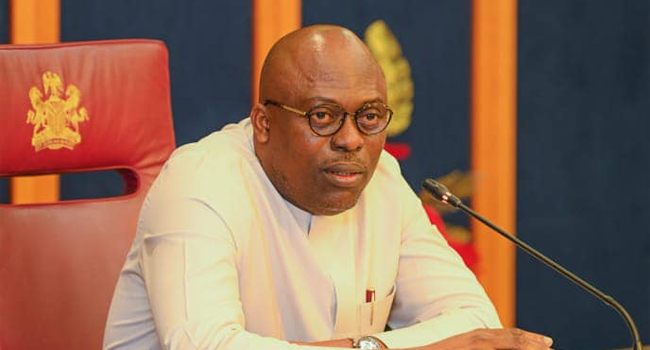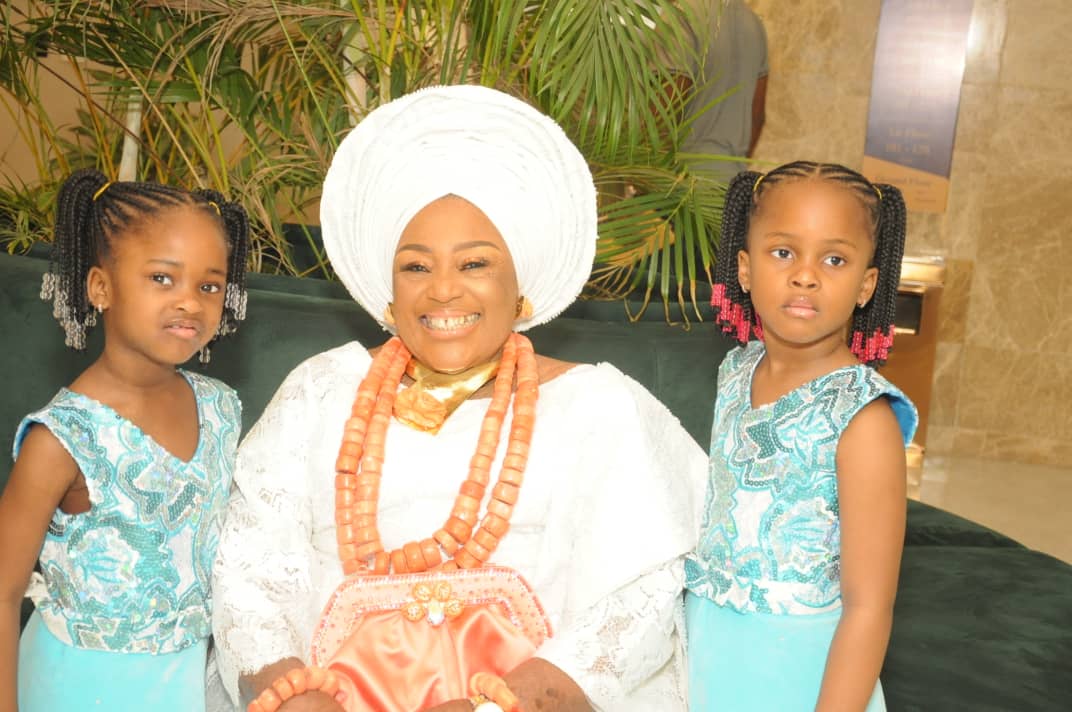Suspended Rivers State Governor, Siminalayi Fubara, has debunked allegations that he tele-guided attacks on oil installations by suspected militant groups in the state.
Also, the governor said that claims that he did nothing to rebuild the bombed State House of Assembly after he ordered its demolition are untrue.
The Governor explained he acted on expert advice before demolishing the complex, which was said to have integrity issues.
Fubara, in a statement issued in Port Harcourt by his Chief Press Secretary, Nelson Chukwudi, said it was important to straighten the records.
Recall that President Bola Tinubu, in his speech while declaring a state of emergency in Rivers, berated the Governor for doing nothing to prevent the attack on oil pipelines.
But the suspended Governor insisted that the allegations were untrue, saying the attacks were ignited by the comments of the Minister of the Federal Capital Territory, Nyesom Wike, who during his media chat described the Ijaw as minorities.
He also said that Ijaw leaders and groups had asked the FCT Minister to apologize for his disparaging comment about the Ijaw, but their call fell on deaf ears.
The statement reads in part, “Our attention has been drawn to a number of allegations claiming that the Governor of Rivers State, His Excellency, Sir Siminalayi Fubara, did nothing to dissuade criminal groups and militants from making good their threats to attack oil installations in the State.
“There was also another claim that after demolishing the Hallowed Chambers of the State House of Assembly on Moscow Road in Port Harcourt, the Governor did nothing to rebuild the facility.
“Ordinarily, we would have ignored the statements as mere results of lack of adequate information to the Presidency by those tasked with the responsibility of providing same to guide decision-making, but it has become imperative to set the records straight and correct the erroneous impression such narratives are creating in the minds of the Nigerian people.
“First, it is important to clarify that Governor Fubara has nothing to do with the threats by militants and also did not in any way “telegraph” the reported attacks on any oil facility in the State.
“It is on record that the reaction of stakeholders in the Niger Delta, especially elders, chiefs, women, Ijaw National Congress, its youth wing, IYC, as well as militants, among others, was triggered by remarks by the Minister of the Federal Capital Territory (FCT), Chief Nyesom Wike, in a live media chat, during which he dismissed Ijaws as a minority of the minorities and powerless in the Nigerian polity, saying that Ijaws are not the only ones that are militants and can blow up pipelines; that Ogonis, Ikwerres, and others are also militants and can as well blow up pipelines.
“Most of the Ijaw groups and leaders even demanded an apology from the FCT Minister, which he rebuffed.”
The governor continued, “Available public records show that Governor Fubara, on several occasions and at every forum, including all the project commissioning events as well as the handover of the AW139 Helicopter to the Nigerian Air Force, between March 3 and 13, 2025, made it clear that his administration was committed to the peace, security, and safety of oil facilities in the State.
“He often recalled his pivotal role as a member of the Presidential Committee on the Protection of Oil Installations in the Region, and repeatedly emphasized the need to protect oil pipelines and other facilities in the State, urging his supporters and the people of the State to avoid acts capable of destabilising the state or sabotaging the nation’s economy.
“Since inception as the Chief Executive of Rivers State, Governor Fubara has prioritized investment in upscaling the welfare and operational equipment of all personnel and arms of the Armed Forces and security agencies in the State by building livable office and residential accommodation for officers and men and donating vehicles, gunboats, helicopters, and other critical needs of the formations to enhance efficiency and effectiveness in the performance of their duties.
“His commitment to total peace and good governance in the State has contributed significantly to increased oil production and revenues for the country since May 29, 2023, as the continuous rise in the accruable revenue from the State into the Federation Account has shown over the months.”
The statement said, “It is on record that Governor Fubara acted based on professional advice and guidance.” The statement denied the claim that the governor acted with impunity to demolish the Hallowed Chambers of the State House of Assembly and did nothing to rebuild them 14 months later.
He added, “Let it be clarified that the former Governor and now FCT Minister repeatedly criticised the dilapidated and leaking Assembly Complex. During the commissioning of the Assembly Quarters in August 2022, he challenged the lawmakers to take responsibility for the poor state of the edifice, rejecting requests to rebuild it to ensure a conducive legislative environment for the lawmakers.
“It must be noted that immediately after the incident of October 29, 2023, and experts’ reports, the Government decided to heed the age-old demands of the lawmakers to rebuild the facility and promptly demolished the dilapidated structure to give way to a state-of-the-art Assembly Complex, which is now nearly 80 percent completed.
“It would be recalled that in the wake of the most peaceful and violence-free Local Government election in the State on the 5th October, 2024, the supporters of the FCT Minister violently attacked and razed facilities in some local government council secretariats without any reprisals from Governor Fubara’s supporters.
“It is also pertinent to draw the attention of security agencies to the fact that LGAs where those attacks were unleashed are the same places that have repeatedly witnessed violence perpetrated by detractors of the Governor Fubara-led administration.
“This is why the security agencies need to focus on the real purveyors of violence, critically evaluate these incidents, and diligently undertake investigations to unravel the elements behind the crimes and bring them to justice without let or hindrance.
“It is clearly untrue that somebody who has all the while preached peace and non-violence, even in the face of extreme provocations, would be ‘telegraphing attacks on oil pipelines’ and breaching the peace he has worked so hard to promote and sustain for the good of the people of the State.”
The Punch


 News7 years ago
News7 years ago
 Featured7 years ago
Featured7 years ago
 Boss Picks7 years ago
Boss Picks7 years ago
 Headline7 years ago
Headline7 years ago
 Headline6 years ago
Headline6 years ago
 Headline6 years ago
Headline6 years ago
 Headline7 years ago
Headline7 years ago
 Headline6 years ago
Headline6 years ago




























